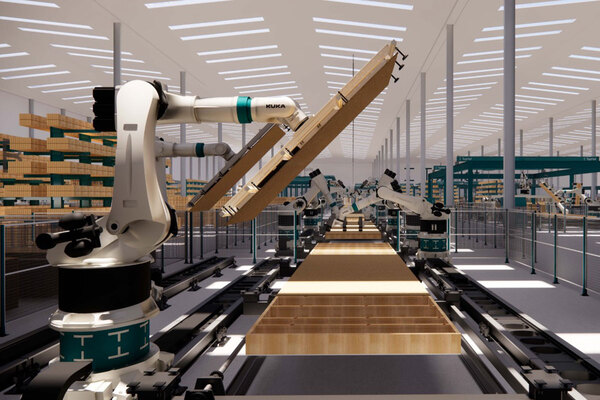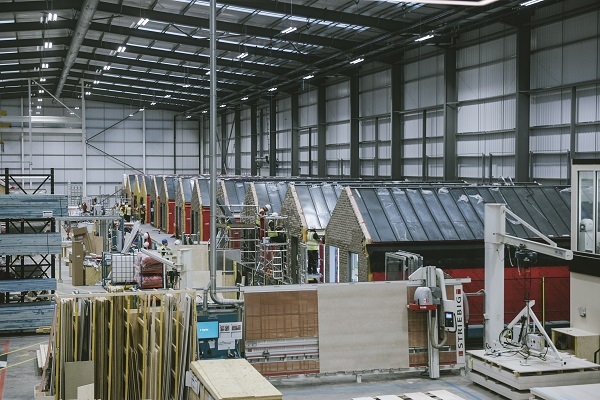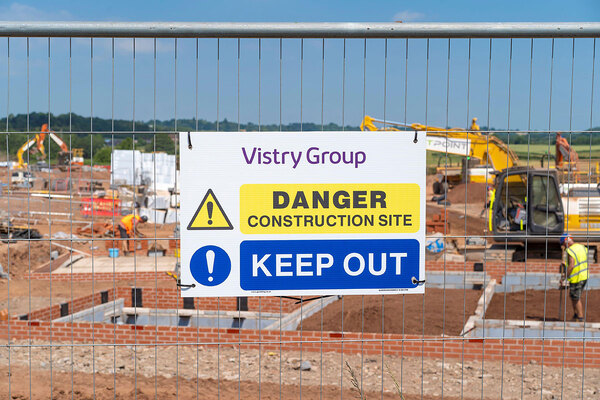You are viewing 1 of your 1 free articles
MMC is still going wrong, but it’s not too late to fix it
In the wake of the news that TopHat is winding down its modular housing operations, Lord Moylan, chair of the House of Lords Built Environment Committee, asks: what is the future for modern methods of construction?
TopHat is only the latest in a long line of companies to face difficulties in their modern methods of construction (MMC) operations. Category 1 MMC – where three-dimensional units are constructed offsite – has particularly struggled. Throughout 2022 and 2023, several Category 1 MMC companies faced collapse and closure.
This led the House of Lords Built Environment Committee, which I chair, to hold an inquiry into the use of MMC for housebuilding, with the aim of understanding why the sector was struggling and whether government policies to support growth were working.
We published our letter to the government in January and since then, the sector has faced further difficulties. Why?
The case of TopHat gives some insight. In a statement, the company cited a “challenging market environment” and “continued reduction” in its future pipeline.
It is not new information that any factory-based operating model needs consistent pipelines. TopHat told us that “having a consistent level of demand is critical to success.” We found that these pipelines were not in place. MMC manufacturers were facing – and evidently still face – inconsistent and insufficient demand. This is a barrier to scale.
Scale is crucial to the success of MMC. Homes England recognises this. Its “Five-S” approach aims to support MMC through scaling up, standardisation, safety and assurance, soft levers, and stimulating the market.
To date, there have been failures in each of these. Homes England’s approach has no clear objectives, no metrics with which to measure success, and no timescale for implementation. Since we sent our letter there has been a change in government, but these concerns remain.
Why is building scale a challenge? During our inquiry, we heard that Category 1 MMC has a range of benefits. It does not rely on traditionally skilled labour, it makes housebuilding faster, and it can produce homes that are more energy-efficient – an attractive prospect for consumers looking to reduce energy costs.
Yet the private sector is not providing sufficient demand. We found that the government’s support of MMC through the Affordable Homes Programme could help to drive demand but found this difficult to assess given the lack of available data about the use of MMC. Consumer confidence may also be a barrier. These are not insurmountable challenges if the government chooses to understand and address them.
“TopHat may be winding down its modular operations, but there is hope for the future. This government has made its housing ambitions clear”
Underlying this is a lack of understanding from the government of the issues that affect growth in the sector. Questions about the comparative cost of MMC and traditional housebuilding were unresolved in our inquiry but are crucial considerations when investing public funds. We also heard that standardisation could risk innovation and intellectual property, and that attempts to address safety concerns could create additional regulatory barriers for MMC homes.
TopHat may be winding down its modular operations, but there is hope for the future. This government has made its housing ambitions clear. MMC remains a viable option and could be – in the words of Homes England – revolutionary.
This government needs to decide, and make clear, what its priorities are for the MMC sector. Category 1 MMC could hold great promise for housebuilding, if it is supported to flourish. The government needs to decide if there is an effective role for it to play in supporting this.
Lord Moylan, chair, House of Lords Built Environment Committee; former councillor, Royal Borough of Kensington and Chelsea
Sign up for our development and finance newsletter
Already have an account? Click here to manage your newsletters













